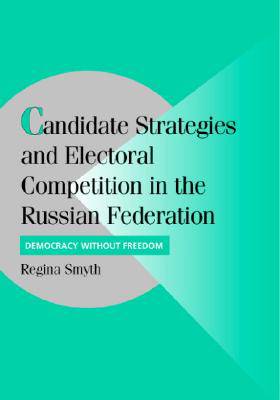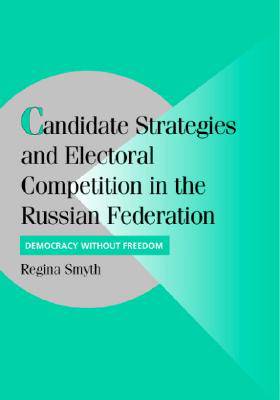
- Afhalen na 1 uur in een winkel met voorraad
- Gratis thuislevering in België vanaf € 30
- Ruim aanbod met 7 miljoen producten
- Afhalen na 1 uur in een winkel met voorraad
- Gratis thuislevering in België vanaf € 30
- Ruim aanbod met 7 miljoen producten
Zoeken
Candidate Strategies and Electoral Competition in the Russian Federation
Democracy without Foundation
Regina Smyth
€ 142,95
+ 285 punten
Uitvoering
Omschrijving
In the early 1990s, competitive elections in the Russian Federation signaled the end to the authoritarian political system dominated by a single political party. More than ten years and many elections later, a single party led by Russian President Vladimir Putin threatens to end Russia's democratic experiment. Russia's experience with new elections is not unique but it does challenge existing theories of democratic consolidation by showing that competitive elections cannot guarantee successful democratic consolidation. This book explores the conditions under which electoral competition contributes to democratic development by examining impact of elections on democratic consolidation.
Specificaties
Betrokkenen
- Auteur(s):
- Uitgeverij:
Inhoud
- Aantal bladzijden:
- 260
- Taal:
- Engels
- Reeks:
Eigenschappen
- Productcode (EAN):
- 9780521846905
- Verschijningsdatum:
- 24/04/2006
- Uitvoering:
- Hardcover
- Formaat:
- Ongenaaid / garenloos gebonden
- Afmetingen:
- 161 mm x 233 mm
- Gewicht:
- 489 g

Alleen bij Standaard Boekhandel
+ 285 punten op je klantenkaart van Standaard Boekhandel
Beoordelingen
We publiceren alleen reviews die voldoen aan de voorwaarden voor reviews. Bekijk onze voorwaarden voor reviews.











